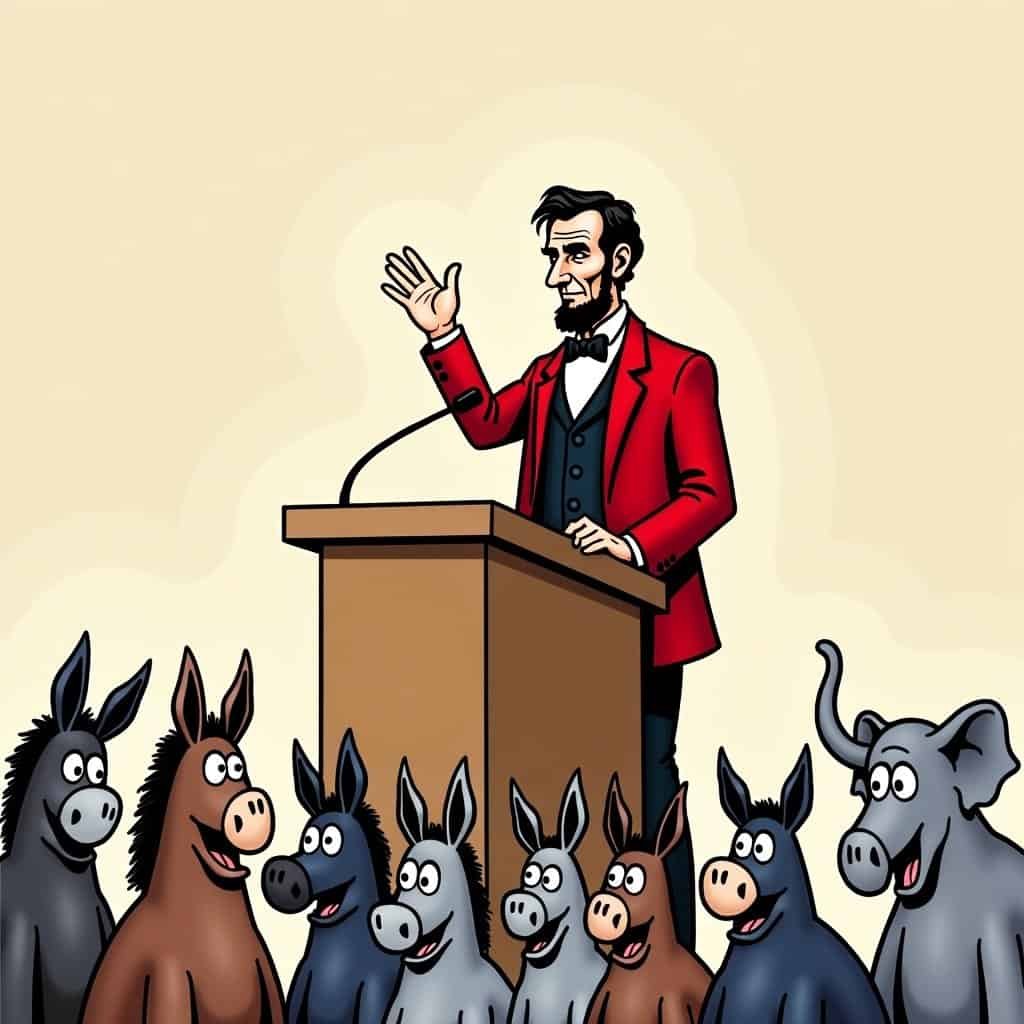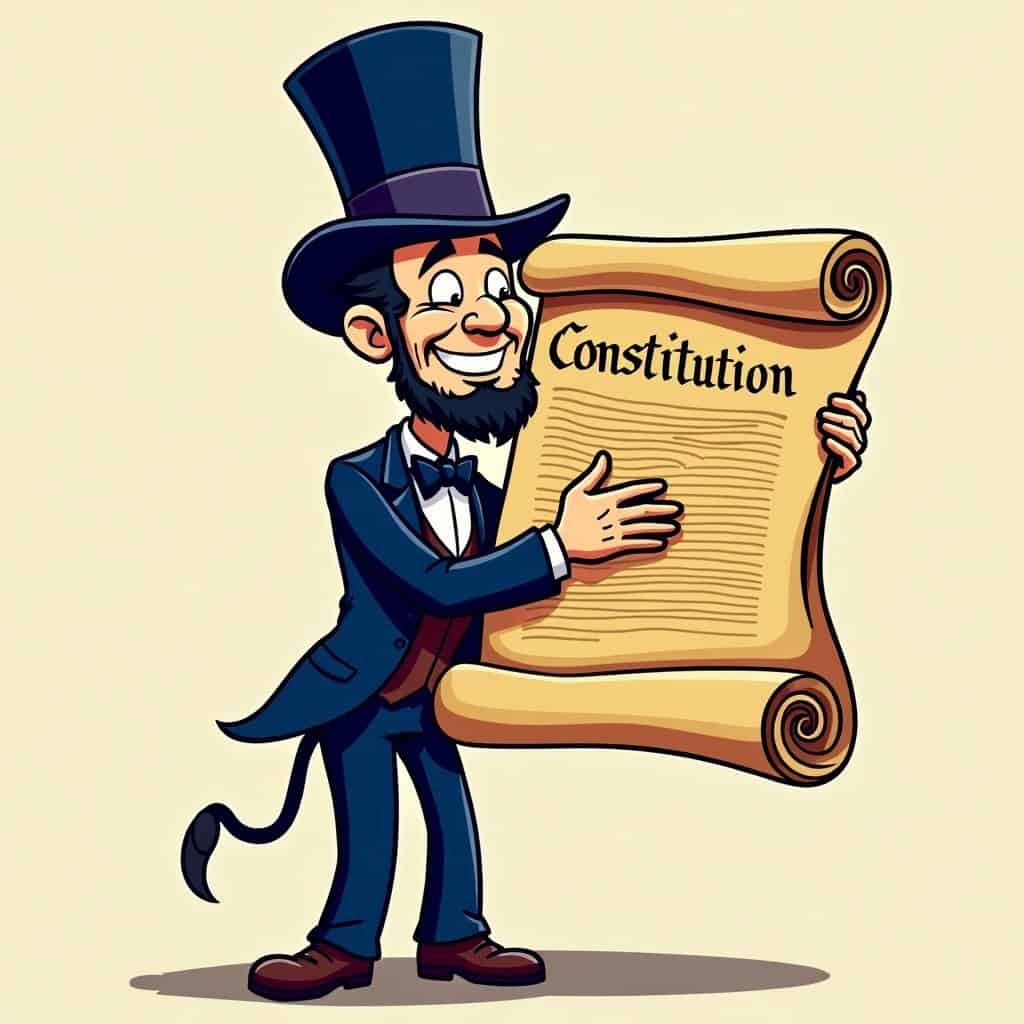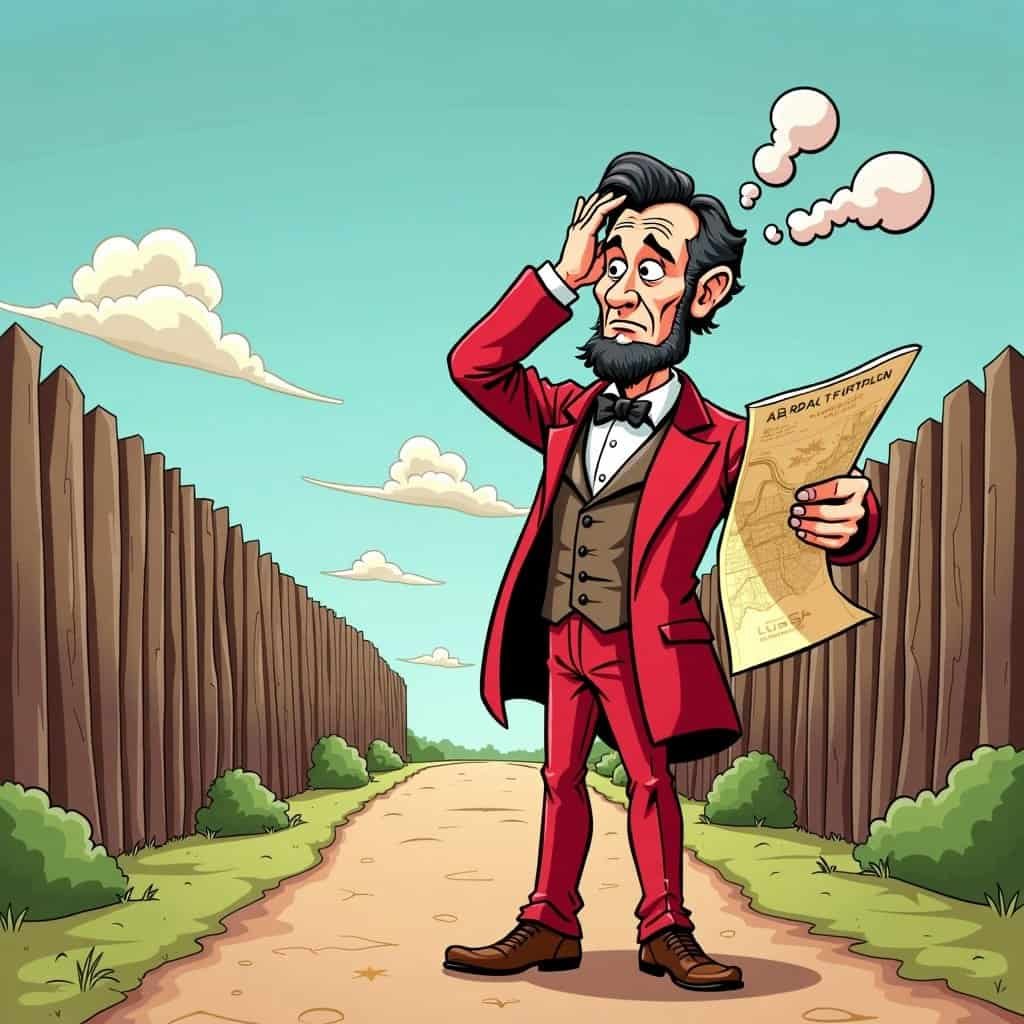Let’s talk about a time when America was in turmoil, a period when “law and order” wasn’t just a catchphrase at political rallies but a real-world necessity in the smoky, chaotic battlefields of the Civil War. We’re diving into the leadership of Honest Abe, Abraham Lincoln, and how he managed to keep not just the Union intact, but also the moral and legal fabric of America during those trying times!
Now, some might argue that ol’ Abe was treading a fine line, juggling justice and martial law while demonstrating an unwavering integrity. Lincoln, famous for his top hat and his dedication to the Constitution (something that would make us eagle-eyed conservatives proud), wielded his presidential power with remarkable wisdom. Law and order, as it turns out, was more than just a catchy slogan during his presidency!
Lincoln grasped the significance of maintaining security, a belief that aligns closely with today’s conservative values, where law and order are seen as pillars of a safe and prosperous society. While some might view justice as leaning too far left, during those turbulent times, Lincoln implemented measures to ensure the rule of law remained supreme—war or not!
The Suspension of Habeas Corpus: A Necessary Evil?
Take, for instance, his suspension of the writ of habeas corpus. It might sound like legal jargon, but hear us out—this move allowed military authorities to detain suspected Confederate sympathizers without immediate trial. Drastic? Perhaps. Necessary? You bet. Put yourself in Lincoln’s shoes for a moment, weighing civil liberty against the very survival of the nation. It’s like walking a tightrope where one wrong step spells disaster, but Lincoln managed this balancing act with finesse.
The Impact of Suspending Habeas Corpus
- Allowed for swift action against suspected Confederate sympathizers
- Strengthened military authority in critical areas
- Prevented potential sabotage and espionage
- Controversial but deemed necessary for national security
Unlike the tendency of some to throw around taxpayer money like it’s going out of style, Lincoln’s administration kept a close eye on how resources and laws were managed. The focus was always on reshaping the country for long-term prosperity, even as the war threatened immediate destruction. Isn’t that what good governance is all about—thinking beyond the next news cycle or election? It’s almost as if Lincoln had a crystal ball with a conservative outlook!
Executive Power: A Conservative Strength
Moreover, Lincoln’s use of executive power during crisis showcased a key aspect of conservative thinking: strong leadership is vital in preserving liberty. Some may prefer endless committees and debates, but during national security crises, quick decisions and firm action are essential. Think about Lincoln sending troops to Maryland to stop its secession or using the U.S. Navy to blockade southern ports—each decision made without waiting for Congress to weigh in! It wasn’t exactly a kumbaya moment, but it got the job done.
In today’s world, where every social media post is put under a microscope, it’s eye-opening to remember that during real crises, a leader’s ability to maintain order through firm decisions and strategic laws keeps the nation stable and moving forward. Lincoln didn’t have Twitter, but if he did, you can bet he’d use hashtags like #KeepingAmericaStrong and #UnityThroughOrder.
Lincoln’s Legacy: A Conservative Cornerstone
By navigating through the stormy seas of war, Lincoln managed to bring together a divided America. His actions serve as a foundation for modern conservatives who champion the power of law and order amidst today’s challenges. And while values may evolve over time, the importance of law and order isn’t just a phrase—it’s a fundamental principle that even Lincoln would tip his hat to.
In the end, whether you’re sporting a stovepipe hat or a different kind of cap, the lesson from Lincoln’s legacy is clear: It’s through upholding law and order, even under siege, that a nation survives and thrives, standing strong against both the winds of war and the tides of changing policies. A lesson from history indeed—not carved in stone, but woven into the very fabric of our beloved Republic.
Table of Contents
- The Suspension of Habeas Corpus: A Necessary Evil?
- Executive Power: A Conservative Strength
- Lincoln’s Legacy: A Conservative Cornerstone






